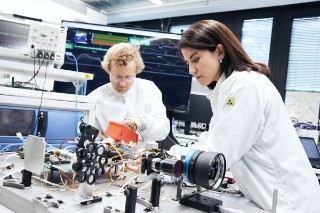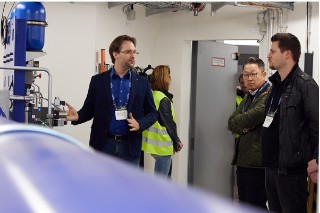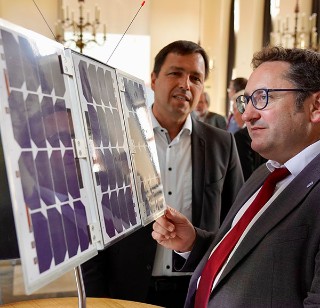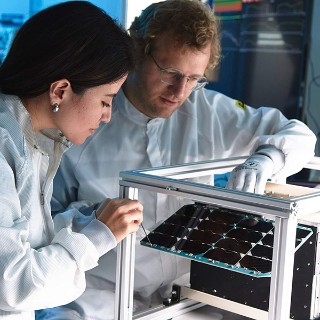
Researchers from the Fraunhofer Institute for High-Speed Dynamics, Ernst-Mach-Institut, EMI have developed a technology that makes it possible to reclaim continuous carbon fibers from composite materials — without diminishing material quality. High-power lasers are used for local degradation of the matrix of multi-layered fiber-reinforced plastics at high temperatures. This method offers not only ecological benefits but also considerable economic potential.
more info





